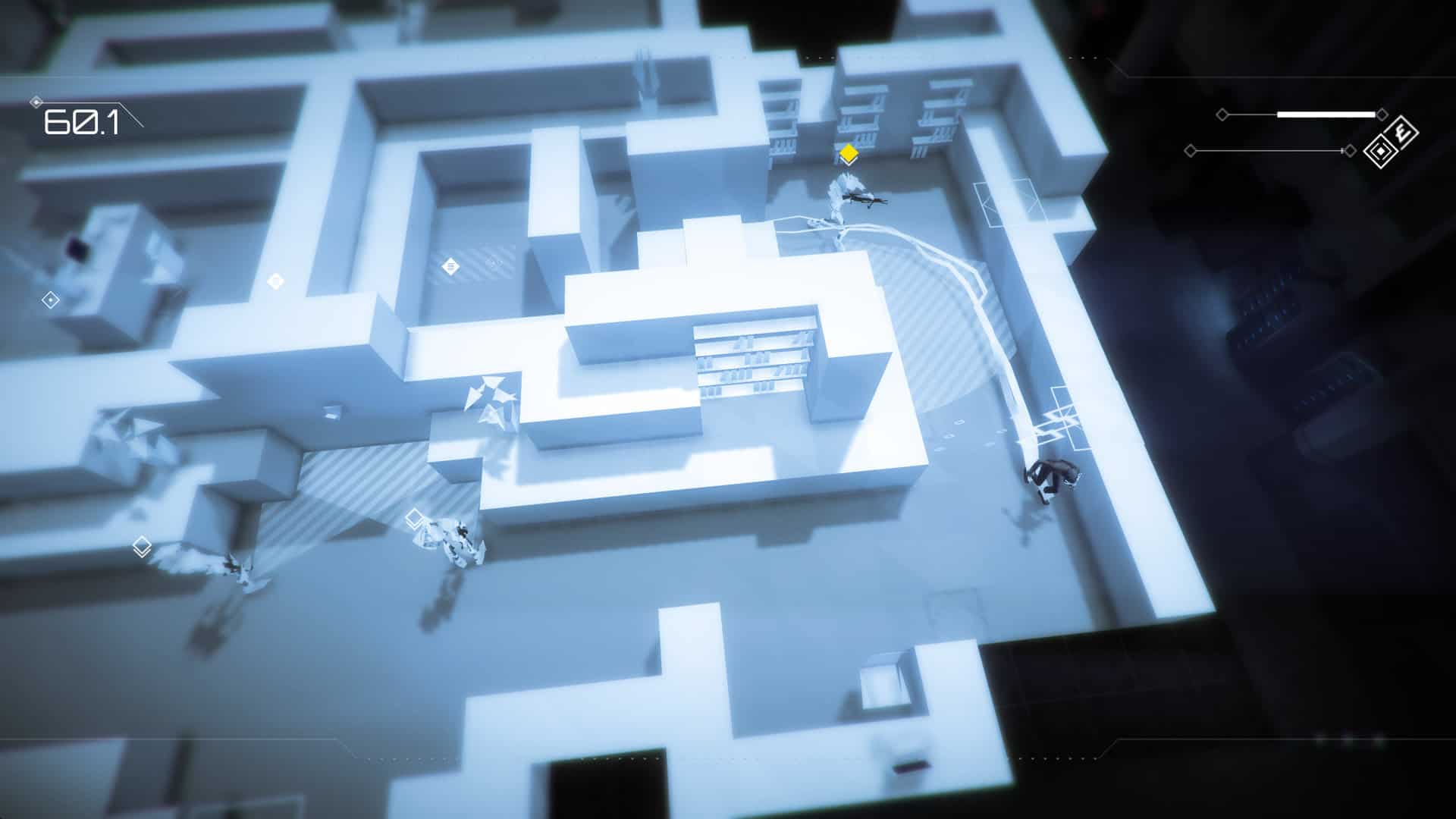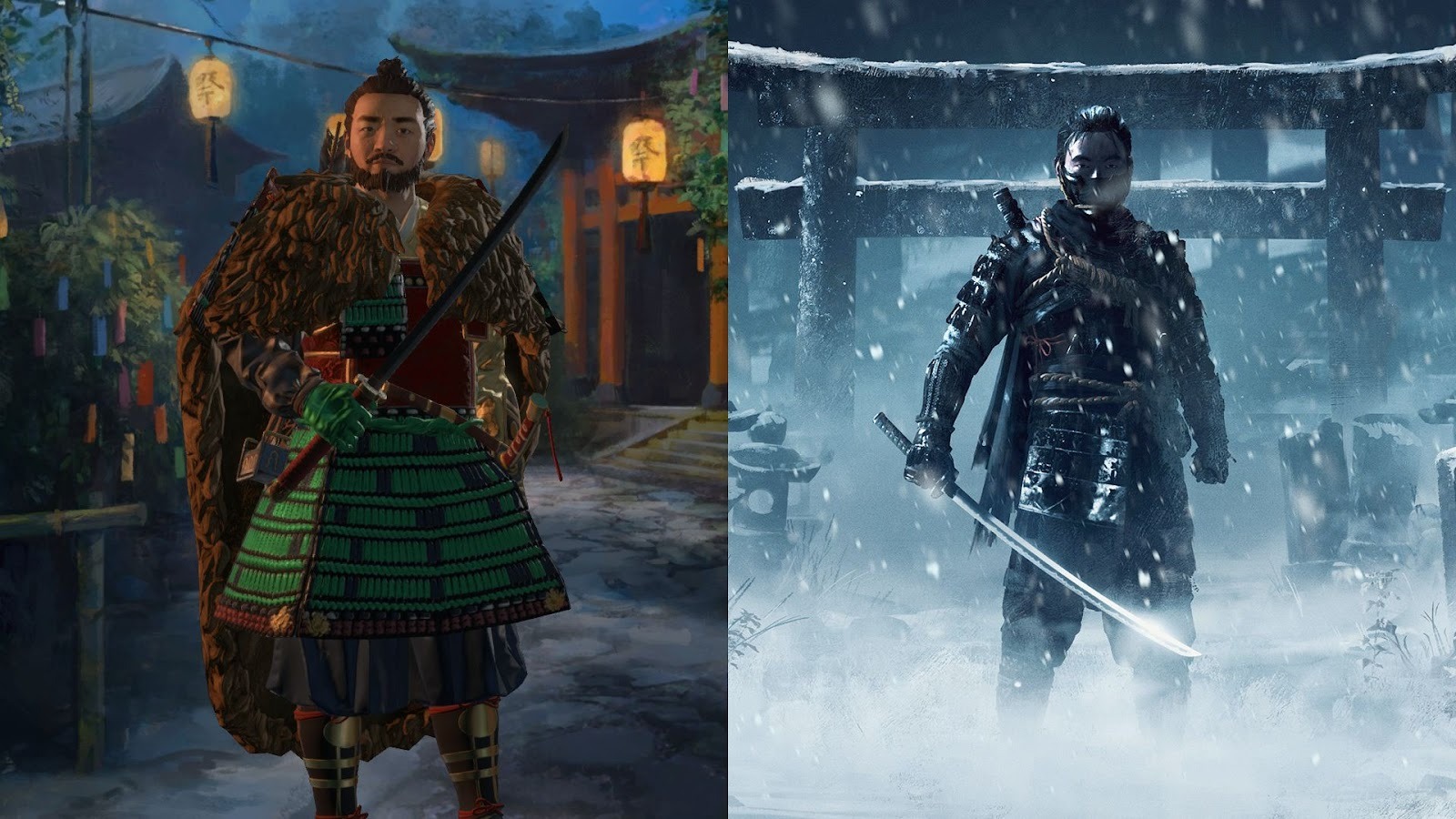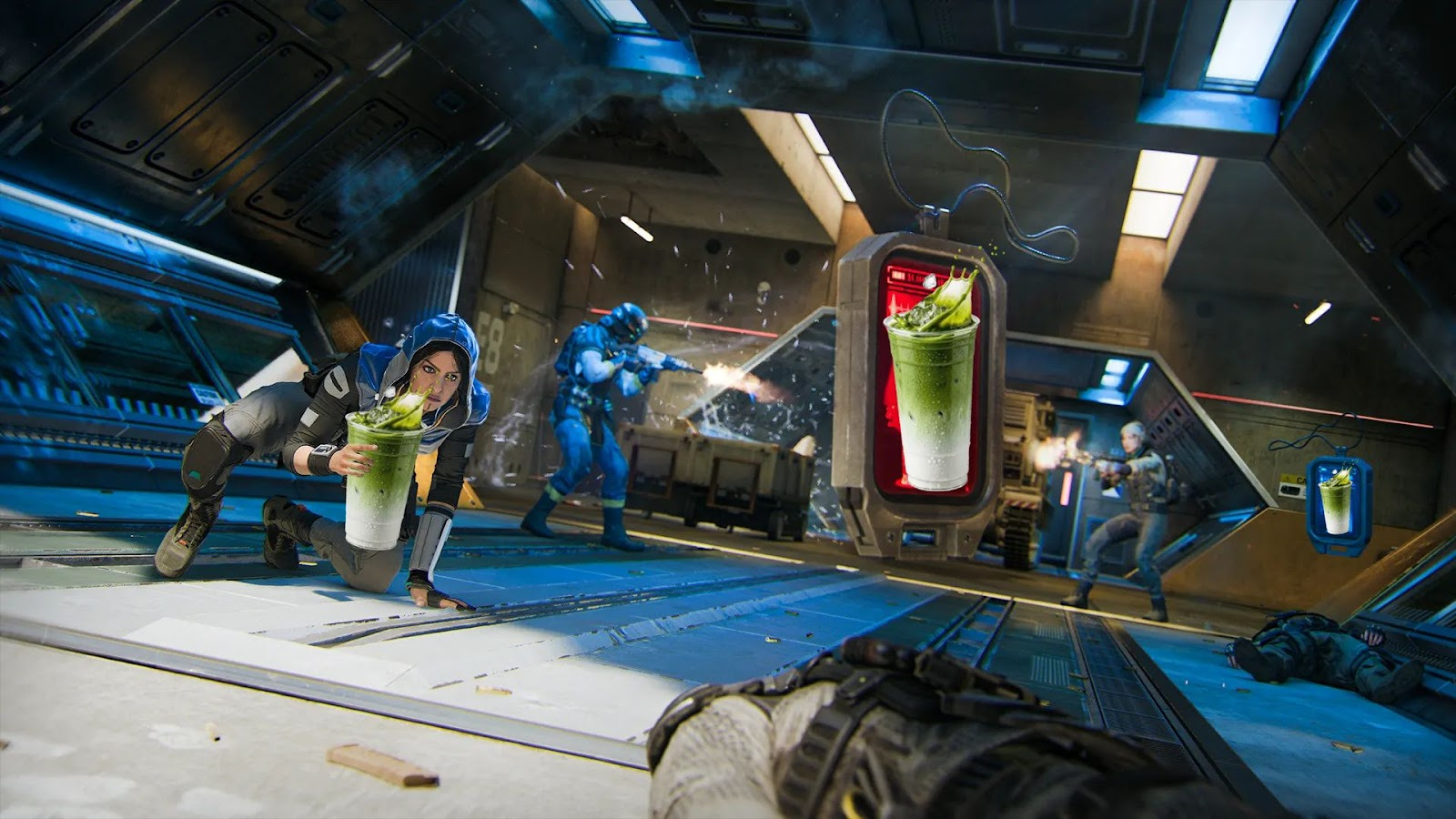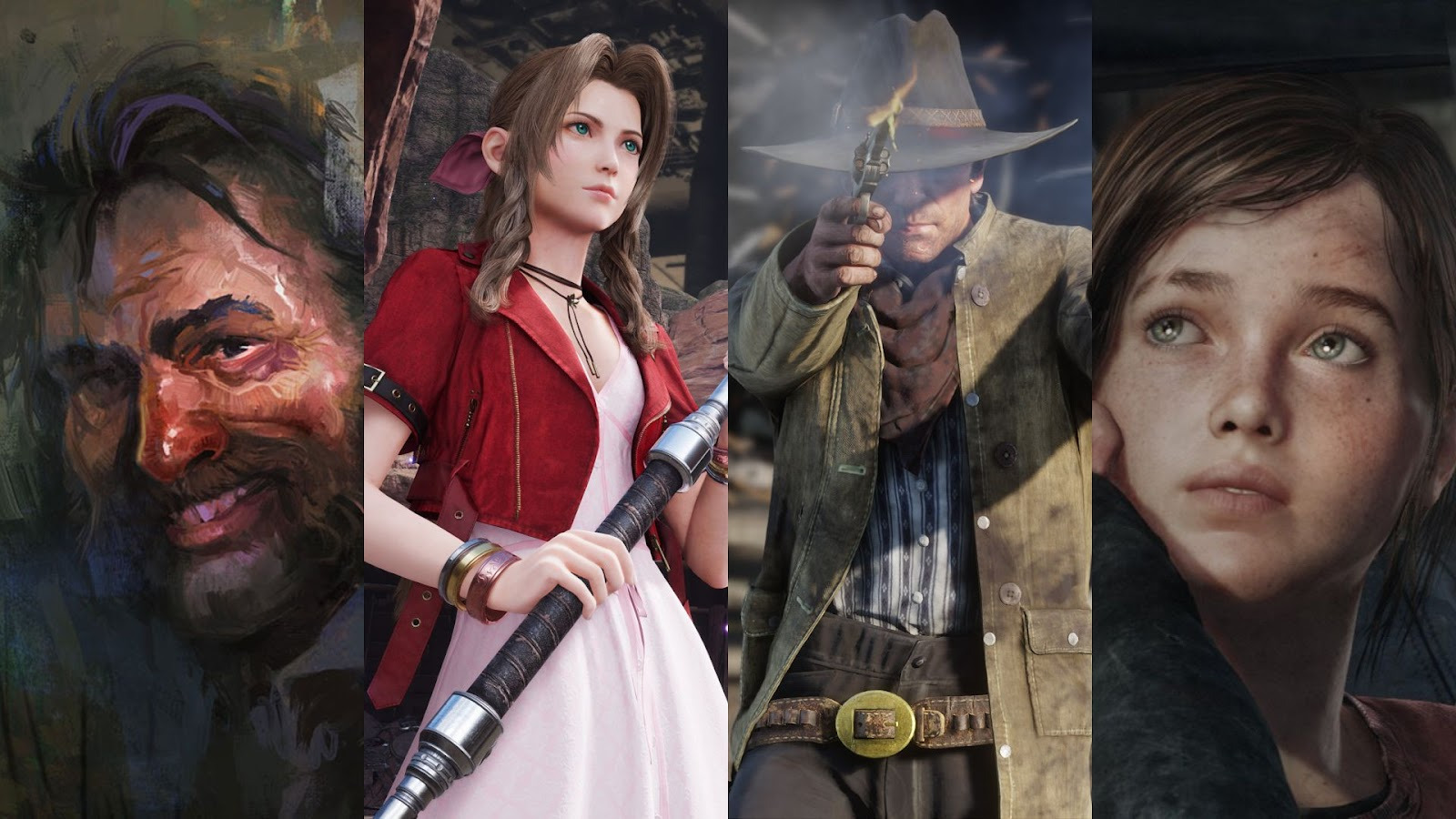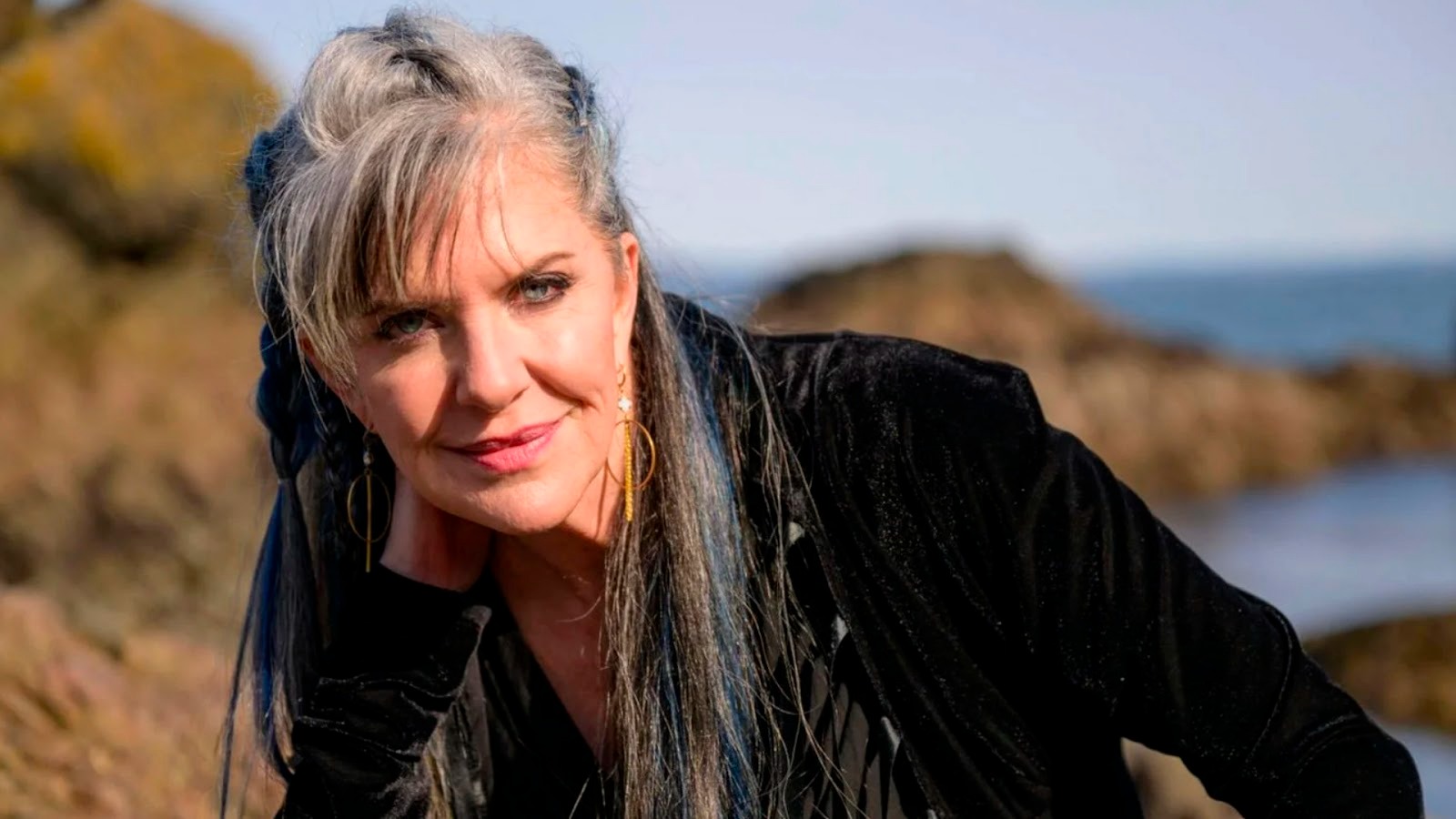You can trust VideoGamer. Our team of gaming experts spend hours testing and reviewing the latest games, to ensure you're reading the most comprehensive guide possible. Rest assured, all imagery and advice is unique and original. Check out how we test and review games here
Interview conducted at this year’s EuroGamer Expo.
VideoGamer: You’ve gone from a platformer centered around shapes with feelings, to a tactical stealth game. It’s a big shift in genre. What led to that?
Mike Bithell: It was less pre-planned than it might seem. Basically, it was the next game on the list. The honest answer is that back when I was working for other people at various studios, I saw all the indie games coming out and I was jealous. Unfortunately I was a rubbish programmer. I’d made a couple of flash games that weren’t very good and that was about it. So I decided to make something really straightforward and simple and just try and polish it as much as possible. That’s Thomas Was Alone, an intentionally very simplistic game.
Through the process of that, I learnt how to code… which is nice. Which meant that the next game – the game that I always wanted to make since I was a kid – was this game, Volume. It’s the kind of stealth game that I loved when I was 13-14. So, you know, the original Metal Gear Solid game and MGS 2. Games that used “occlusion stealth”, back before Splinter Cell made shadows sexy. Thief obviously existed, but I think Thief was very confined to the PC and I was a console gamer as a kid.
VG: Yeah, Splinter Cell does seem to have had a big impact on the genre.
MB: And then everyone went in that direction! I always liked the hide behind walls, more than I liked the shadows, because there’s no ambiguity. Well there shouldn’t be, if it’s well designed. You should know what can see me, how close they have to be to see me, have they seen me, and then it feels empowering in a way that I think shadow stealth isn’t. You know the situation and have full awareness of what’s going on around you.
VG: Volume feels like more of a tactical game than I was expecting. A top-down view combined with the fact that – like you said – you should know exactly where the enemies are looking and you shouldn’t be thinking ‘oh I wonder if I can get past here’. Instead it’s ‘Yes I should be able to’, or ‘No I need to think of something else.
MB: Hopefully! I think there are places where we can improve that, but we’re working towards it.
VG: Obviously a key part of Thomas Was Alone was the narration. Now you’ve been teasing a little bit on twitter that you’re planning some voiceover work for Volume and you’ve got a few voice actors lined up. Is narration going to be as here?
MB: Yes. I think it’s interesting with the narration in Thomas Was Alone, which in retrospect is the best choice I made on the game, but actually it was something that happened much later on. The original plan was motion-typography, with, y’know, stuff going on.
[waves hands about]
I don’t know if that’s going to be captured in words…
And that was awful because it meant I had to constrain my level design to fit things in and change things and then take words out of sentences. I was making rubbish levels and writing a rubbish script, so I decided to go with narration and I didn’t see the amount of popularity it would gain. A lot of that is down to Danny’s amazing performance and hopefully a little bit of it is the script.
The idea with Volume is to try and expand on that, with a multiple character cast, with different voices. It’s doing stuff in hopefully an interesting way and is a way of telling a story that I’ve not seen [achieved in] a great deal in games. Especially not indie games. Voice casts cost money and that’s a trade-off. I’m going to spend my money on that rather than this and a lot of indie games don’t want to do that. It’s quite a fun little niche to have to myself. Playing with this idea of how do characters work in an indie game and if I can write any script I want, what am I going to do?
VG: I was going to ask with the success of Thomas Was Alone, you’ll have a bigger budget to play around with and what does that mean for Volume… but I guess you’ve just answered that?
MB: Yeah, it’s voice acting and being able to get a really good cast. But also getting art. I mean this is a really big step up from the rectangles, and that requires concept artists, 3D modellers, environment artists, characters artists, animators, all this kind of stuff. I also really wanted to focus on the sound as well, so David Housden is back for music. which is great. We’ve also got a sound designer, which is so essential for a stealth game, because of the additional information sounds can give you. I’ve been very lucky! It’s not a mega-budget game, I imagine the stands for several of the games here are more expensive than Volume.
VG: I noticed on your own stand that you’ve got a little message saying “…too indie to remember text on our banner”, which I enjoyed. And just playing through your tutorial it’s obvious that humour is still a really big part of the experience. That’s going to carry on when you add the voiceover?
MB: I’m not a big fan of the whole ‘what does it mean’ mysterious approach. I mean some people do it very well, but I don’t. I think you can say stuff about the universe and humanity and politics with a grin on your face. You can have fun with it. I actually think it helps with Thomas, that you care about those characters partially because you’ve laughed with them and at them. There’s a humanity to humour. Volume definitely has aspects of my views on politics, people, and various things, but at the same time it’s going to be jokey. I always go back to Joss Whedon – I love his stuff. The guy makes his points very well, but he always allows you to have fun with it.
VG: Shifting back to the gameplay, you joke around in the tutorial that at the moment you’ve got lockers which players can hide inside, and that you’re sure you’ll have more objects later on. Do you have an idea of what the final game is going to look like in terms of its complexity?
MB: I think visually, this is how it will look. In terms of the mechanical depth, it’s always going to be about objects in the world that you can use for a certain purpose. Lockers to hide in, noisy floorboards that will make sound as you walk over them, flushing toilets to distract guards. Those things will exist. And then you’ve got the items you can carry: the bugle and the blackjack. It’s just a matter of expanding on this, so the gadgets you have will be bumped up to 10 or something. I haven’t quite decided yet. Until I run out of cool things I want to add, I guess!
VG: That doesn’t sound like a bad approach.
MB: Exactly. And the environment stuff will be the same, but I don’t want them all to be about making sound. That’s something we have in there right now and we’re going to expand on that. So I think the moment-to-moment complexity is going to be about where it is, but there just has to be more variety involved.
VG: From my experience with the demo, although there are moments where you can take your time and evaluate the situation, it feels quite fast-paced. Is that going to be the theme throughout?
MB: Yeah. I don’t want it to be a game where you stand behind cover waiting to see a patrol. That is going to be one way of playing it, but I want players who are a bit more adventurous to be allowed to do so.
I want that tension. And that’s part of the reason why you can’t kill the enemies in the game. You should feel tense. If you can kill enemies, then you feel powerful, and it’s very hard to take that power away from the player. Whereas here you’re constantly at risk. There’s no safe area. You can’t clear a room.
VG: So do you have any kind of idea what your release schedule is going to be like for Volume?
MB: It’s going to be late next year. That’s PS4 and Vita, then a month later it’ll be out for PC, Mac, SteamOS.
VG: Is that part of the agreement you have with Sony then?
MB: Yeah, it made sense from a whole bunch of reasons. Honestly it gives me time to get them ready. I don’t want to launch on five platforms simultaneously. It’s going to work out quite well, I think. I was expecting there to be a little bit of anger or backlash, but everyone has been really cool about it so far.
VG: Are you planning to have any kind of early access? That seems to be incredibly popular with a lot of the indie games.
MB: I’m probably not going to do early access, just because I don’t believe in over-sharing a game until it’s ready. Events like this are a very controlled environment and I get to see everyone playing and receive that feedback directly. I’ll be taking it to events and showing it at things, but I don’t think I’m going to go down the early access route.
VG: It doesn’t suit every game…
MB: It doesn’t suit me from a constitutional point of view. I’d rather make a game and then release it in exactly the way I want it and then see how people react to that.
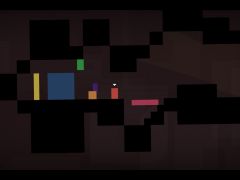
/https://oimg.videogamer.com/images/d980/volume_1.jpg)
/https://oimg.videogamer.com/images/d2a4/volume_4.jpg)
/https://oimg.videogamer.com/images/d6e6/volume_7.jpg)
